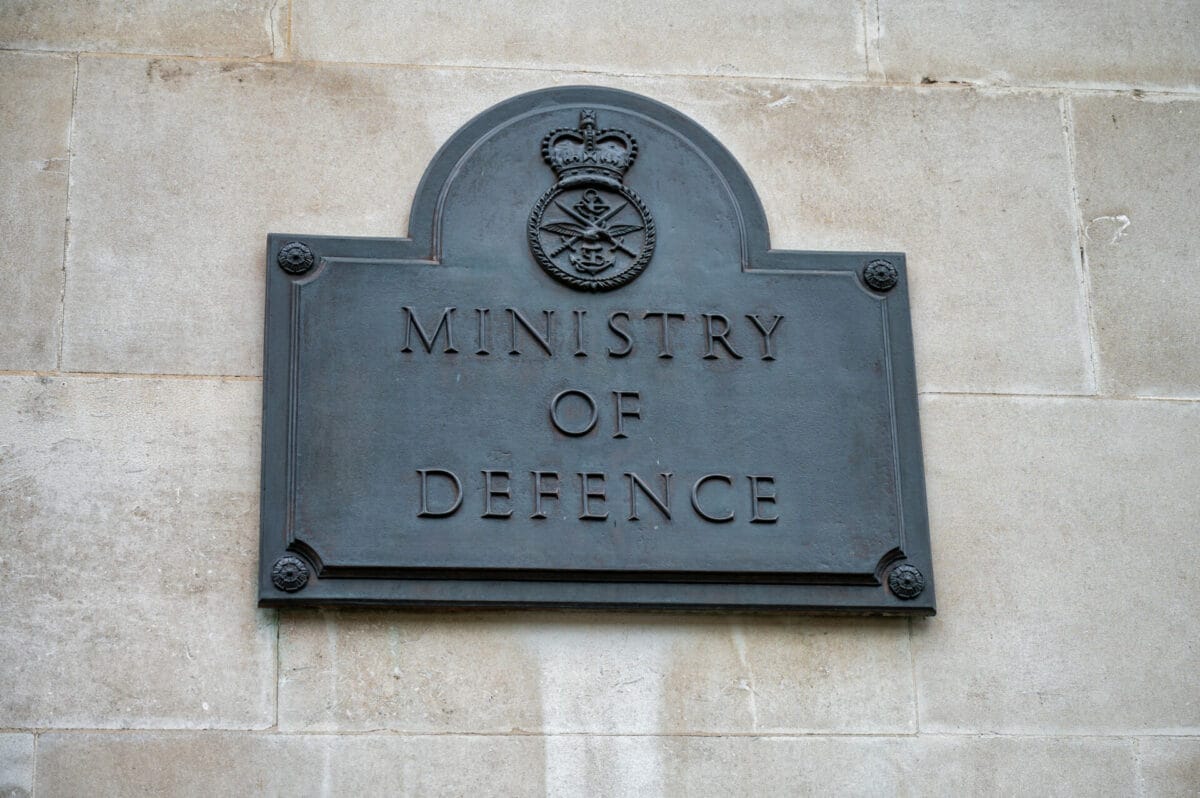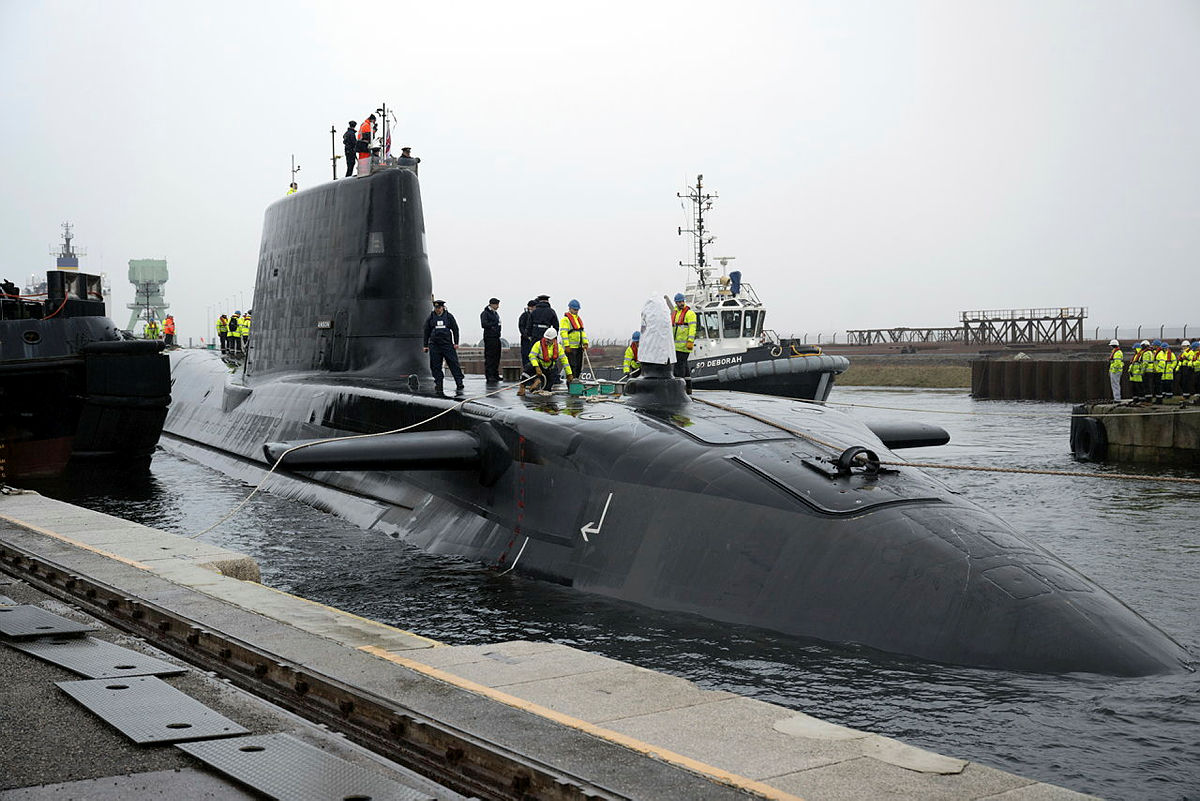An arm of the Ministry of Defence (MoD) which oversees the UK’s nuclear weapons programme has refused to release details of over 100 security incidents it logged over the last five years, prompting accusations of a “cover up”.
According to new figures – released to The Ferret after a freedom of information (FoI) request – the Defence Nuclear Organisation (DNO) has recorded 113 ‘security concerns’ since 2017-18.
The DNO said these incidents may have ranged from minor breaches of security policies to the outright loss of information.
But despite claiming that many of the reported incidents would not have “significant ramifications”, the organisation refused to provide descriptions of any. It cited national security concerns and fears about damaging the UK’s reputation internationally.
The DNO is responsible for all issues related to the UK’s nuclear weapons – apart from military operations.
Its refusal to release further information has been met with concern by politicians and campaigners.
The Scottish Greens said there was a “pattern of secrecy” around UK nuclear weapons that “smacks less of national security and more of a cover up”. The SNP’s armed forces spokesperson at Westminster said operational and national security concerns were being used “far too often” by the MoD as a “smoke screen to prevent proper scrutiny”.
An MoD spokesperson told The Ferret it takes its security responsibilities “extremely seriously” and added that the majority of the security incidents posed “no risk at all” of information being lost.
Operational and national security can far too often be used as a smoke screen to prevent proper scrutiny.
Owen Thompson, SNP MP
The DNO is based at the MoD’s headquarters in London but also has staff stationed around Britain, including at the Coulport base, on Loch Long, where the UK’s nuclear warheads are stored.
The organisation’s responsibilities include maintaining existing warheads, delivering the replacement warhead programme, and conducting scientific research for the nuclear weapons programme.
In response to our FoI request, the DNO said it is “mandated that all information assurance security incidents” are reported.
“The type can vary from a breach of security policy (for example, leaving a cabinet unlocked at the end of the working day) to a loss of information, meaning many reported concerns do not have significant ramifications for defence security,” it said.
The DNO cited three reasons why further details of the breaches could not be released. It claimed doing so would “harm the national security of the UK”, was likely to damage “the capability, security and effectiveness of the armed forces”, and could “negatively impact relations between the UK and the US, and between the UK and Nato”.
The body did confirm that there were no data breaches in the last five years.
The Ferret has previously reported on issues of transparency around nuclear weapons at the MoD. In April, we revealed that the department was keeping nuclear safety reports secret because of fears that they could stoke “anti-nuclear arguments from the Scottish Government”.

At that time, the Scottish Greens MSP, Mark Ruskell, condemned the MoD’s secrecy as “outrageous, undemocratic and frankly dangerous”.
Now Ruskell has told The Ferret that the newly exposed security concerns at the DNO show the only way to keep Scotland safe from nuclear weapons was “to get rid of them for good”.
He said: “One or two incidents while worrying could be almost understandable, but more than 100 is on an almost industrial level and is all the more concerning because of the lack of detail and transparency involved.
“This pattern of secrecy smacks less of national security and more of a cover up. Time and time again we learn of security and safety lapses involving the nuclear weapons programme thanks only to the efforts of brave, investigative journalism such as this.”
David Cullen, director of the Nuclear Information Service said the MoD had a culture of “obsessive secrecy” which was “antithetical to good practice and common sense”.
“Without any external accountability, there is no mechanism that can ensure that security is being taken seriously within the DNO,” Cullen claimed.
“This FoI response appears to prioritise the reputation of the DNO as a ‘secure organisation’ over the kind of transparency that is essential for a good security culture to flourish.”
Owen Thompson, the SNP’s armed forces and veterans spokesman at Westminster, said: “To have one incident logged at the Defence Nuclear Organisation would be concerning but to have more than a hundred raises really serious issues.
“There is always a veil of secrecy drawn by the UK Government over any aspect of the nuclear arsenal and the estate surrounding it.
“However the MoD must strike a balance between transparency and accountability in a democracy and the national interest. Operational and national security can far too often be used as a smoke screen to prevent proper scrutiny.”
An MoD spokesperson said: “We take our security responsibilities extremely seriously. All staff are required to report any incidents that may lead to information loss, but the majority of these incidents pose no risk at all to the information concerned.
“All incidents are investigated thoroughly, and we have implemented a comprehensive range of measures to prevent breaches from occurring.”
In March The Ferret reported that security breaches are also a concern at the UK’s nuclear power plants.
An FoI we submitted found that the force that protects nuclear plants, the Civil Nuclear Constabulary, had reported 37 security breaches in 2022, an eight-year high. Unlike the DNO, the Civil Nuclear Constabulary provided descriptions of the breaches, which included the thefts of several items including an officer’s uniform and three Microsoft tablets.
Cover image thanks to Andrew Linnett/MoD














